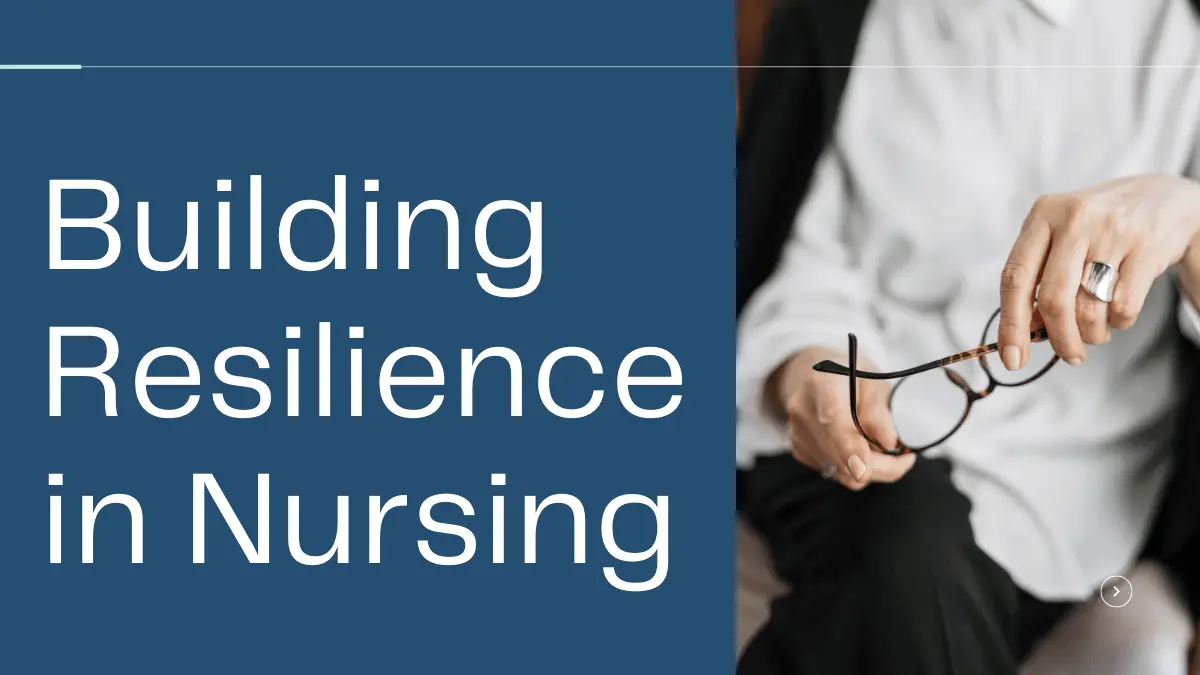In the demanding field of nursing, resilience is not just a desirable trait; it’s a necessity. Nurses face numerous challenges daily, including high stress, long hours, emotional strain, and ever-evolving medical complexities. Building resilience is crucial for nurses to navigate these challenges effectively while maintaining their well-being and providing high-quality care to patients. In this comprehensive guide, we will explore proven strategies and practices to foster resilience in nursing.
Understanding Resilience in Nursing
Resilience in nursing refers to the ability to bounce back from adversity, adapt to changes, and maintain emotional stability in the face of challenges. It encompasses various dimensions, including psychological, emotional, and professional resilience.
Psychological Resilience: Psychological resilience involves developing coping mechanisms to manage stress, anxiety, and burnout effectively. It enables nurses to maintain a positive outlook, even in difficult circumstances, and prevents them from being overwhelmed by the demands of their profession.
Emotional Resilience: Emotional resilience pertains to the capacity to regulate emotions, empathize with patients, and maintain a sense of compassion without becoming emotionally drained. It involves striking a balance between empathy and detachment to prevent compassion fatigue.
Professional Resilience: Professional resilience encompasses the ability to adapt to changes in healthcare practices, technology, and policies. It involves continuously updating knowledge and skills, embracing innovation, and seeking support from colleagues and mentors.
Case Studies: Real-Life Examples of Resilience in Nursing
| Case Study | Description | Resilience Strategies Implemented |
|---|---|---|
| Case Study 1 | Nurse A experienced high levels of stress and burnout due to heavy workload and patient acuity. | Self-care practices, mindfulness meditation, seeking support from peers and mentors. |
| Case Study 2 | Nurse B faced a challenging patient interaction that triggered emotional distress and compassion fatigue. | Cognitive restructuring, positive self-talk, debriefing with colleagues, accessing employee assistance programs. |
| Case Study 3 | Nurse C encountered resistance to change when implementing new protocols in the workplace. | Problem-solving skills, flexible thinking, seeking guidance from leadership, collaborating with interdisciplinary team members. |
Strategies for Building Resilience
- Self-Care Practices:
- Physical Well-being: Encourage regular exercise, healthy eating habits, and sufficient sleep to promote physical health and energy levels.
- Mindfulness and Meditation: Teach mindfulness techniques and relaxation exercises to help nurses manage stress, increase self-awareness, and improve emotional regulation.
- Work-Life Balance: Advocate for work-life balance by scheduling regular breaks, setting boundaries, and prioritizing personal time outside of work.
- Social Support Networks:
- Peer Support Groups: Facilitate peer support groups where nurses can share experiences, seek advice, and offer encouragement to one another.
- Mentorship Programs: Establish mentorship programs to connect experienced nurses with new graduates, providing guidance, feedback, and career development opportunities.
- Family and Friends: Encourage nurses to maintain strong connections with family and friends outside of work for emotional support and perspective.
- Continuing Education and Training:
- Professional Development: Offer ongoing training and educational opportunities to enhance nurses’ knowledge, skills, and confidence in their roles.
- Resilience Workshops: Conduct workshops and seminars focused on resilience-building techniques, stress management, and self-care practices.
- Leadership Training: Provide leadership training to empower nurses to take initiative, advocate for themselves, and support their colleagues effectively.
- Cognitive Restructuring:
- Positive Self-Talk: Encourage nurses to challenge negative thoughts and replace them with positive affirmations and realistic perspectives.
- Problem-Solving Skills: Teach problem-solving techniques to help nurses approach challenges systematically, identify solutions, and take proactive steps to address issues.
- Flexible Thinking: Foster a culture of adaptability and flexibility, where nurses feel empowered to embrace change, learn from setbacks, and view obstacles as opportunities for growth.
Conclusion
Building resilience in nursing is essential for maintaining well-being, providing quality patient care, and sustaining a fulfilling career in healthcare. By implementing strategies such as self-care practices, social support networks, continuing education, and cognitive restructuring, nurses can develop the resilience needed to thrive in the face of adversity. Investing in resilience not only benefits individual nurses but also strengthens healthcare systems by promoting a culture of compassion, adaptability, and excellence.

